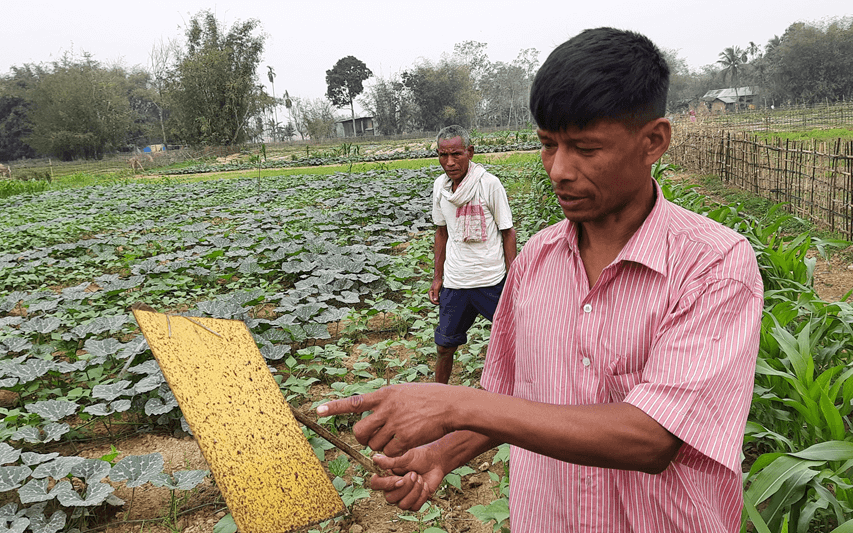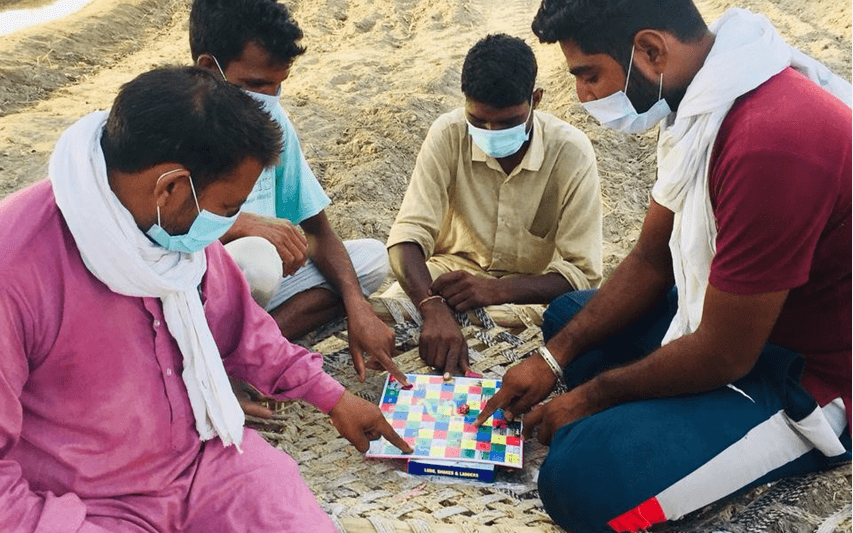Newsletter
Don't miss a thing!
We regularly provide you with the most important news, articles, topics, projects and ideas for One World – No Hunger.
Newsletter
Don't miss a thing!
We regularly provide you with the most important news, articles, topics, projects and ideas for One World – No Hunger.
Please also refer to our data protection declaration.
Lebanon

We will adapt a hive management app (The Beekeeper’s Companion) for Lebanon with a focus on women beekeepers and combine it with a web app for extension workers to improve advisory services and monitoring of bee health. Innovations made possible through these digital platforms include
Why is it needed?
This novel approach to bee health has great potential to assist beekeepers with the many challenges they are facing, in Lebanon and elsewhere, from health to productivity challenges. While the activities proposed seem small, the project provides a scalable approach for monitoring pests and diseases and thereby provides an indication of the agroecological status of the local farming system.
What is innovative about it?
The proposed approach is using a participatory design process to customize and localize the existing beekeeper’s companion app. It includes an interesting incremental innovation by bringing together different types of information that are necessary for good beekeeping practices while focusing on women beekeepers.
"Of special interest are the potential to apply the lessons learned widely, the use of the scaling readiness assessment and the participatory design. The team’s conviction and excitement for their project are a good sign for success."
Challenges ahead
During the proof of concept phase this project would need to demonstrate the feasibility of collecting and managing data, have the app developed and tested as well as have a plan for the scaling up of the proposed approach to better bee keeping. A two-way communication system, where not only data are being sent to the app developer, and handled in an open manner with the beekeepers, but also possible questions responded to would be a plus in such a project.
The International Center for Agricultural Research in the Dry Areas (ICARDA) is an international research organization under the CGIAR agricultural research umbrella, providing innovative, science-based solutions for dryland family farmers in Central and West Asia and North Africa. ICARDA oversees project implementation and monitoring, leads the agricultural pesticide research component, and provides specific field assistance.
Lebanese Agricultural Research Institute (LARI) is a governmental organization, conducting applied and basic scientific research for the development and advancement of the agricultural sector in Lebanon. LARI provides technical support to beekeepers and co-designs the extension web app.
HiveTracks is a private company creating positive impact on bee health, beekeeper livelihoods and biodiversity by connecting people, nature and data. Hive Tracks contributes oversight and advice to facilitate the localization and adaptation of the app and develops the web platform extensions.

This project explores an innovative advisory model for agroecological vegetable farming based on farmer producer companies in India.

This project builds ground for the agroecological transformation of smallholder farming in Senegal following a holistic bottom-up approach.

This project is aiming to digitally empower rural youth as providers of agroecological advisory in small-scale potato farming in India.

This project aims at developing a concept for the transmission (and repetition) of agroecological practices in a lively and conducive environment for smallholder farming families in India and Tanzania.